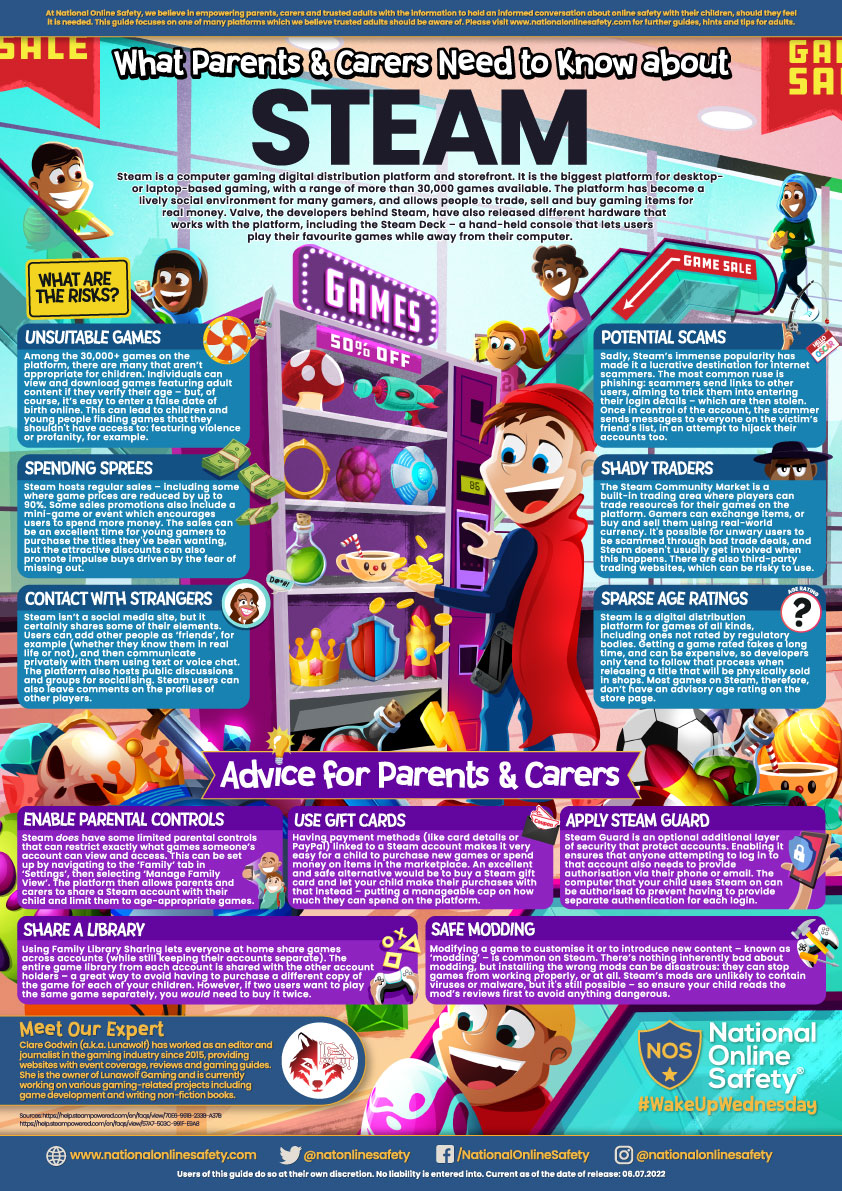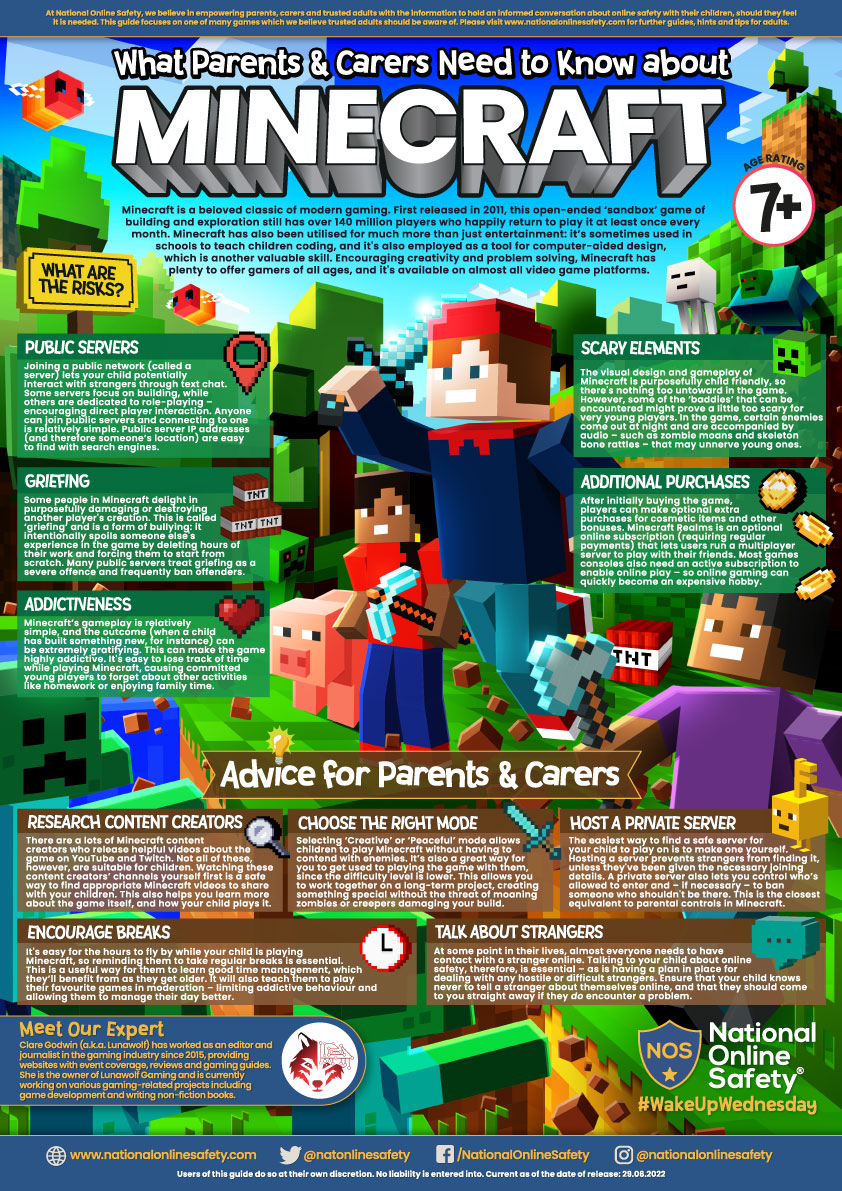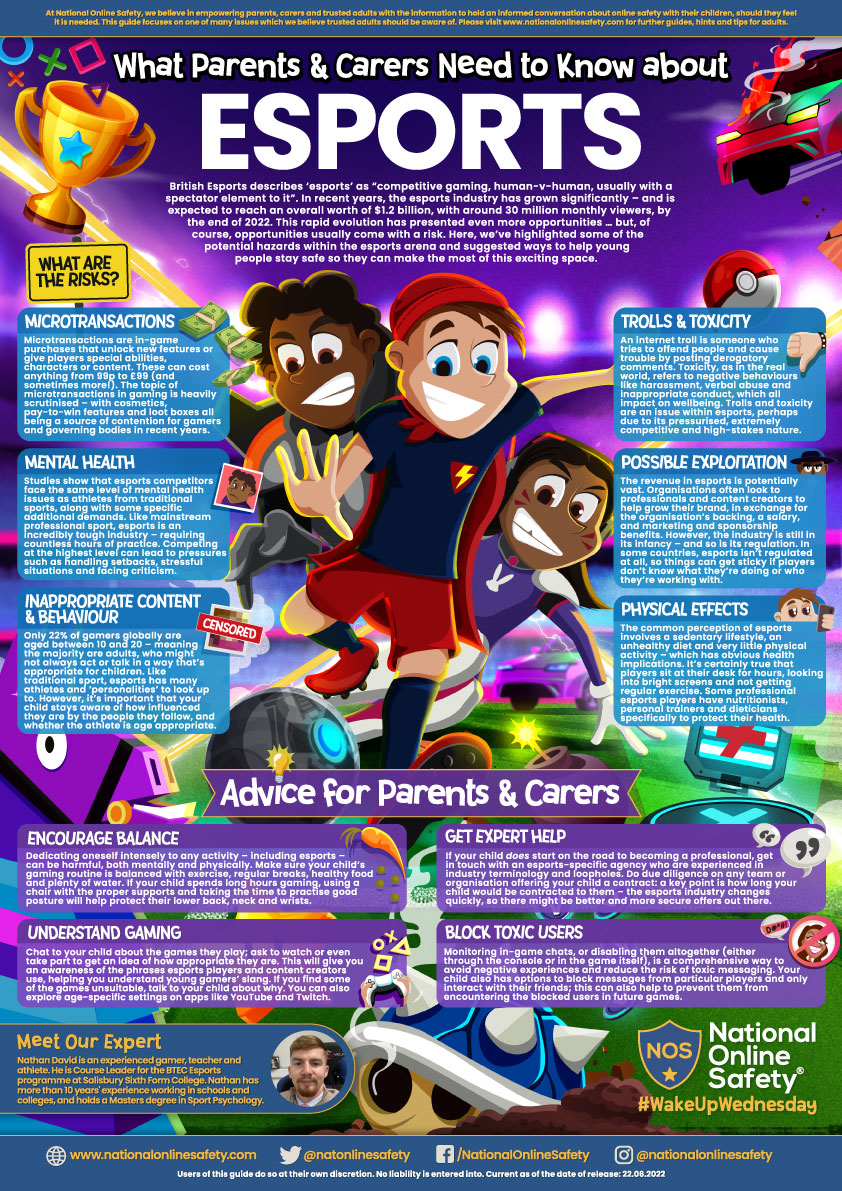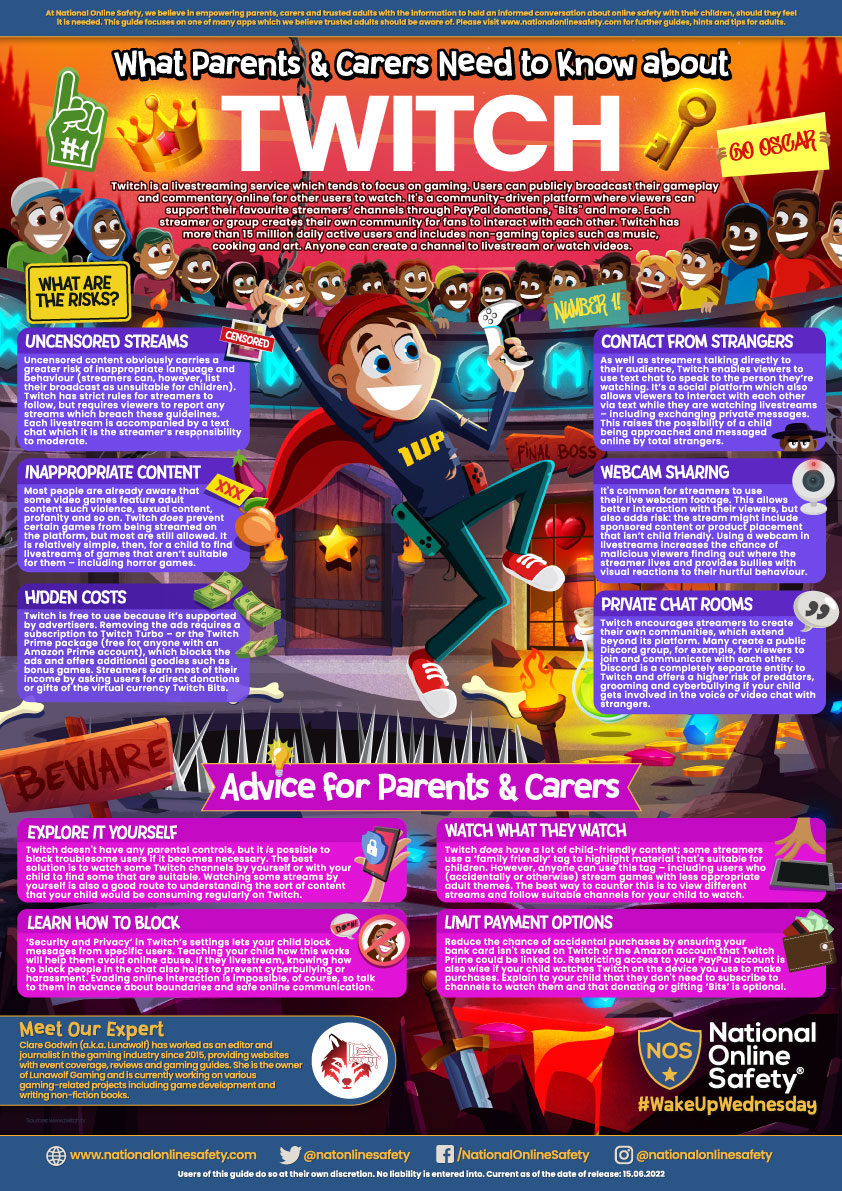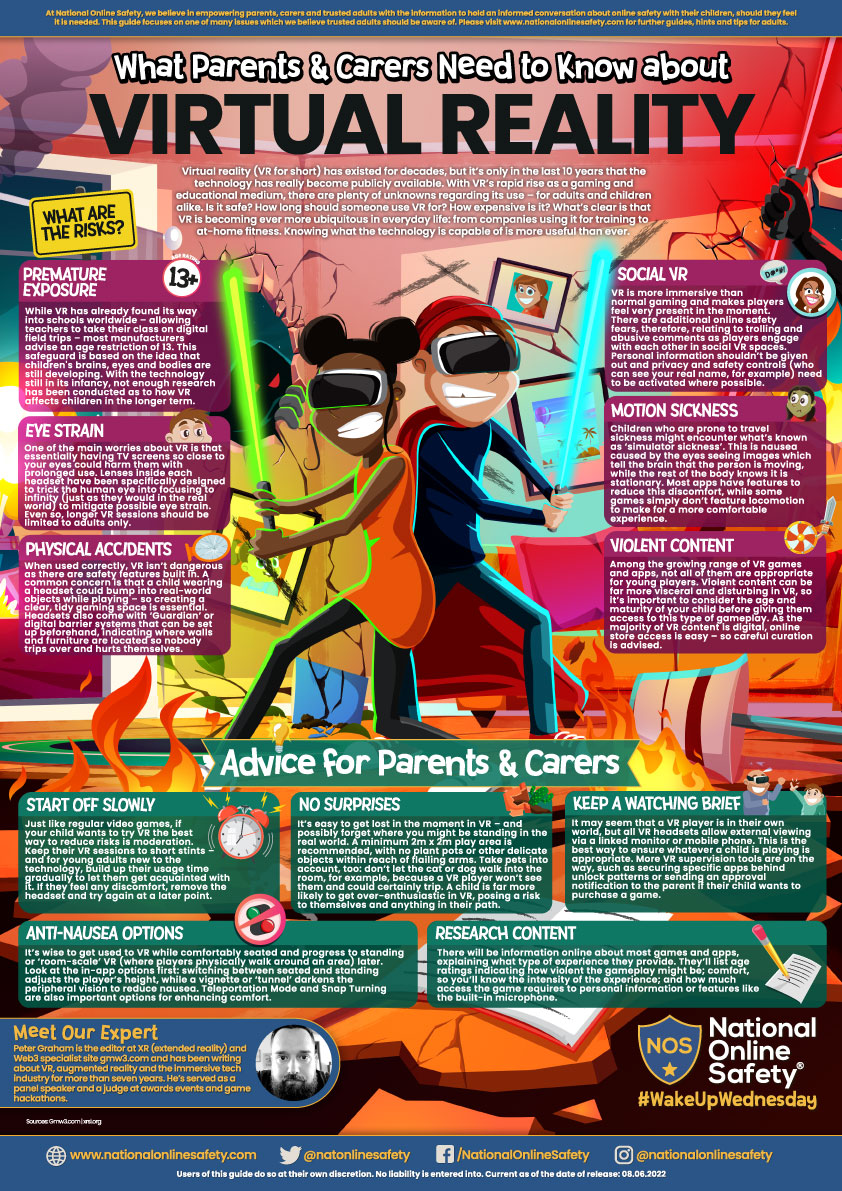Steam came into being simply as a means for software developers Valve to distribute their own games (including the popular Counter-Strike, Half-Life and Dota series), but swiftly evolved to host third-party titles as well. These days, players can find A-list gaming franchises like PUBG, Apex Legends and Grand Theft Auto among the platform’s most-played games.
It’s a model that clearly works: in some recent years, as many of 15% of the total computer game purchases globally have been made through Steam. With a growing volume of users – the vast majority, by default, spending at least some money on the platform – it’s no surprise that scams are among Steam’s pitfalls. Trusted adults should check out our #WakeUpWednesday guide for the full story.National Online Safety
This guide is from National Online Safety.


